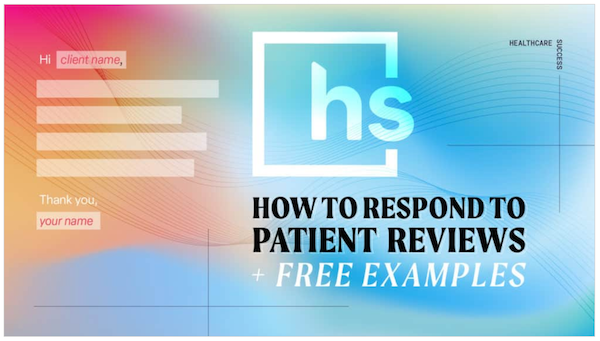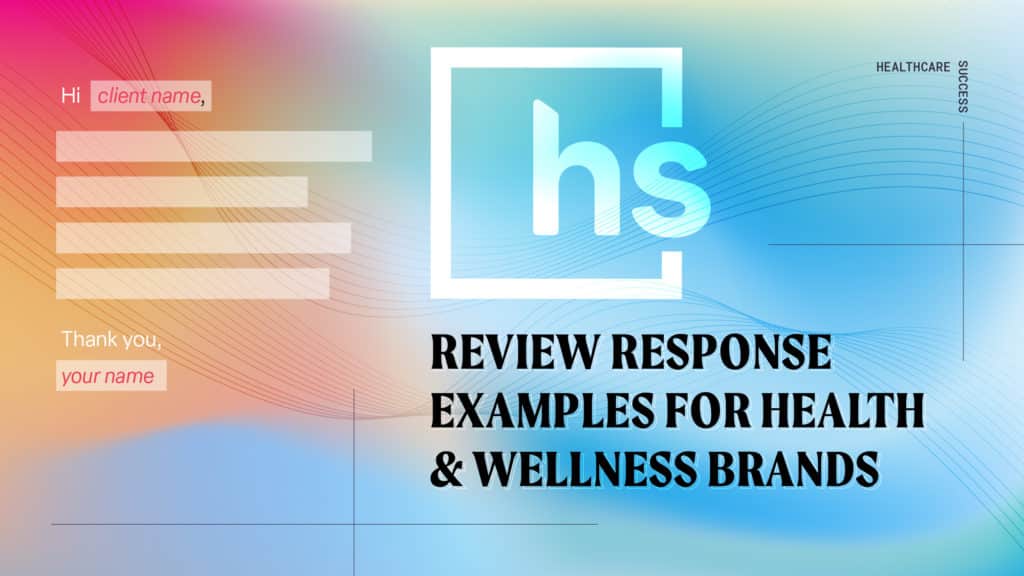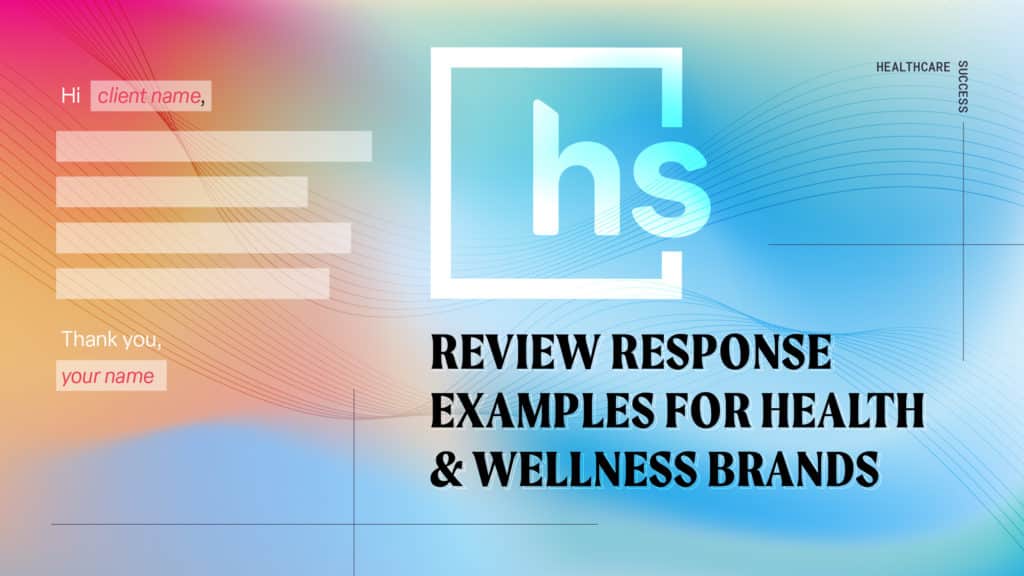
It’s easy to find detailed guides on how to respond to reviews. However, most aren’t written specifically for healthcare, meaning they don’t consider HIPAA or other compliance issues.
Responding to patient reviews can be tricky.
According to HIPAA, hospitals and doctors aren't allowed to share any protected health information (PHI) about reviewers—including whether they're patients.
To offer further discouragement from violating HIPAA, anyone who knowingly obtains or shares individually identifiable health information may face a criminal penalty of $50,000 and up to one year in prison.
Knowing this, your health or wellness brand might hesitate to engage with any online review. However, responding to all negative, mixed, positive (and, yes, even fake) reviews is vitally important.
Here’s why:
A proactive reputation-management strategy allows you to respond to all reviews thoughtfully and quickly.
In this post, I’m sharing helpful prompts to guide you in writing your responses to customer reviews. These templates are meant to be customized for each response. Doing so will improve your review response strategy and online reputation.
Disclaimer: These writing prompts are meant as a springboard to help you get started. Beware of violating HIPAA regulations, and always check with your attorney for advice regarding these responses or any others you post online.
But first, we’ll review best practices and how to respond with HIPAA in mind.
Your patients—and potential patients—are researching your business online. Do you know what they’re finding out about your business practices?
If not, it’s time to start paying attention and responding to reviews. Why?
84% of people trust online reviews as much as friends and family.
Maintaining HIPAA compliance across every consumer touchpoint (at all times) is essential for protecting sensitive patient information and your business from steep fines and potential lawsuits. Including times patients willingly share this information in their online reviews.
Always protect patient privacy and project a professional, caring voice.
Here are our best practices for responding to patient reviews to ensure HIPAA compliance:
The top two best practices to consider when writing review responses are always:
Before drafting any response, consider your brand tone and voice. Take special care to ensure your reply is in line with your business. For example, responses from smaller, physician-owned medical practices will be naturally warmer and more familiar than a larger organization or hospital system.
Download Your FREE Templates Now

Never respond immediately, especially if you’re dealing with a negative review, as it could cloud your judgment and affect the quality of your response.
Take time to plan your response.
Special consideration for fake reviews.
If you diligently monitor your online reviews, you can quickly identify fake reviews that violate the online review site’s policies.
While we recommend responding to fake reviews in a way that encourages further offline, one-on-one communication, you should also request to have them removed. Google makes it easy for businesses with a Google My Business profile to request a review removal.
Positive feedback is an excellent opportunity to reinforce the excellent review and build on your brand.
Bonus tip: Include one targeted keyword or keyword phrase (e.g., business name, location, products, or services) to support SEO optimization.
Download Your FREE Templates Now

We hope these guidelines will help you respond to online feedback in a professional, helpful, and HIPAA-compliant way that both protects your brand reputation and communicates that you care about your customers.
Stewart Gandolf
Chief Executive Officer
The original version of this page was published at: https://healthcaresuccess.com/blog/reviews/how-to-respond-to-patient-reviews-free-examples.html
Founded in 2006, Healthcare Success is a respected, full-service brand performance marketing agency focused on healthcare and recognized as a thought-leader in the industry.
While we are very excited to announce our agency just launched our new website featuring a brand-new design, functionality, backend tech, and fresh content, we expect you’ll ...read more
With a brand-new decade on the horizon, it’s time many healthcare practices, hospitals, health plans, and other organizations make serious shifts in the way they approach marketing. Are ...read more
Best-in-class healthcare marketers are already planning for next year. They’re researching key trends that will attract new high-intent audiences, increase engagement, drive ...read more
Healthcare consumerism isn’t just “coming.” It’s already here. What’s more, healthcare consumerism means big changes for healthcare organizations ...read more